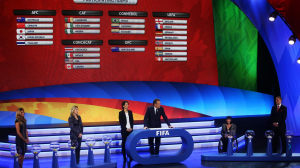On December 1, 2015, the Football Scholars Forum held its 33rd session. The Michigan State University-based online think tank pre-circulated a shared list of readings that formed the basis for a wide-ranging, highly engaging discussion about the impact and aftermath of the 2015 FIFA Women’s World Cup.
Thirteen fútbologists from the United States, Canada, Britain, Argentina, and Lebanon went well beyond the usual focus on the U.S. triumph (its first world title since 1999). The group reflected on the media coverage and scholarly writing about the tournament. Gender discrimination at both FIFA and national FA levels brought out a collective agreement about the dire need for meaningful institutional reform and for much greater funding of women’s football.
Partly reflecting the participants’ interests and expertise, the women’s game in Latin America and the effect of global inequalities attracted considerable attention. Also, the technical, tactical, and physical aspects of the game on Canada’s plastic pitches was scrutinized. Some participants celebrated the individual magic of Marta (Brazil), Necib (France), and Rapinoe (USA) and of teams like Colombia. Others noted the detrimental impact of certain (male) coaches on the games and seemed more critical about the overall playing styles.
I was shocked to learn that in Mexico the most reliable venue for watching Women’s World Cup matches was the local Hooters franchise. Seriously.
In thinking about the aftermath of the World Cup, the group was reminded of the accomplished Australian team that went on strike shortly after the tournament in pursuit of a decent wage. Gaby Garton in Buenos Aires related her experiences of playing in the most recent Copa Libertadores femenina. Her intervention personalized the story of women’s football, past and present: it is not a story of linear progress and perpetual improvement. In fact, it is very much a story of ebb and flow. Clearly, so much work remains to be done, on and off the field.
An audio recording of the session is available here.
